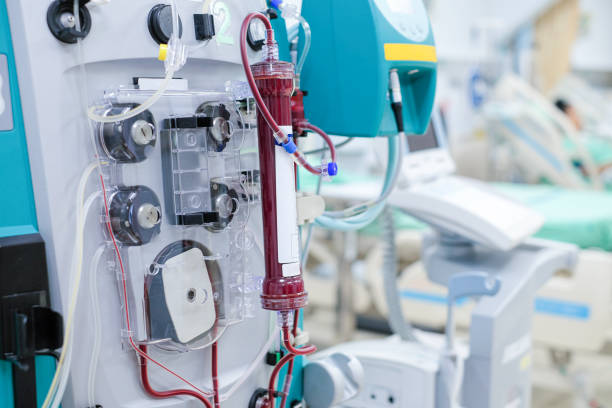Ph.D. in Dialysis Technology: Introduction, Admission, Registration, Eligibility, Duration, Fees, Syllabus 2024

Introduction:
The field of dialysis technology is at the forefront of revolutionizing renal care, offering life-saving solutions to patients with kidney diseases. A Ph.D. in Dialysis Technology equips scholars with advanced knowledge and skills to drive innovation and address challenges in this critical area of healthcare.
Admission Process:
- Submission of Application: Applicants must submit their academic transcripts, letters of recommendation, and a statement of purpose.
- Entrance Exam: Candidates may need to clear an entrance examination assessing their aptitude and knowledge in relevant areas.
- Interview: Shortlisted candidates are typically invited for an interview to assess their research interests and potential contributions to the field.
- Academic Background: A strong background in biomedical engineering, medical technology, or related fields is often preferred.
- Research Proposal: Applicants may be required to submit a detailed research proposal outlining their intended area of study and research objectives.
Eligibility:
- Master's Degree: Applicants should hold a master's degree in biomedical engineering, medical technology, or a related discipline.
- Minimum GPA: A minimum GPA requirement may be specified by the institution.
- Relevant Experience: Prior experience in dialysis technology or related research areas is advantageous.
- Academic Proficiency: Proficiency in relevant subjects such as biology, physiology, and engineering is essential.
- Language Proficiency: Proficiency in the language of instruction, typically English, is required for international applicants.
Completion Time:
The completion time for a Ph.D. in Dialysis Technology typically ranges from 3 to 5 years, depending on factors such as research progress, publication requirements, and dissertation preparation.
Career Opportunities:
- Research Scientist: Conducting cutting-edge research to develop innovative dialysis technologies and treatment modalities.
- Clinical Engineer: Collaborating with healthcare professionals to implement and optimize dialysis equipment and systems in clinical settings.
- Biomedical Engineer: Designing and testing new dialysis devices and technologies to enhance patient care and treatment outcomes.
- Academician: Pursuing a career in academia as a professor or lecturer, imparting knowledge and mentoring future generations of dialysis technologists.
- Industry Consultant: Providing expertise and guidance to companies developing dialysis products and technologies, ensuring regulatory compliance and market viability.
Syllabus:
- Advanced Topics in Dialysis Technology
- Biomaterials and Biocompatibility
- Renal Physiology and Pathophysiology
- Medical Imaging in Renal Care
- Biostatistics and Research Methodology
- Advanced Dialysis Modalities
- Regulatory Affairs in Healthcare Technology
Internship Opportunities:
- Hospital Dialysis Units: Gaining hands-on experience in clinical settings, working alongside healthcare professionals and patients undergoing dialysis treatment.
- Research Laboratories: Collaborating with researchers on ongoing projects focused on dialysis technology development and innovation.
- Industry Internships: Working with medical device companies to understand the design, manufacturing, and regulatory aspects of dialysis equipment.
Scholarships and Grants:
- Institutional Scholarships: Universities may offer merit-based scholarships to outstanding Ph.D. candidates in dialysis technology.
- Government Grants: Research grants from government agencies support doctoral research in healthcare technology, including dialysis.
- Industry Sponsorship: Companies in the healthcare and medical device sectors may sponsor Ph.D. research projects in dialysis technology, providing financial support and access to resources.
FAQs:
Can I pursue a Ph.D. in Dialysis Technology with a background in engineering?
Yes, candidates with a background in engineering, particularly biomedical engineering, are well-suited for doctoral studies in dialysis technology.
What career opportunities are available after completing a Ph.D. in Dialysis Technology?
Graduates can pursue careers as research scientists, clinical engineers, biomedical engineers, academicians, and industry consultants in the field of dialysis technology.
Are there opportunities for international students to pursue a Ph.D. in Dialysis Technology?
Yes, many universities offer Ph.D. programs in dialysis technology with opportunities for international students to apply.
How can I fund my Ph.D. studies in Dialysis Technology?
There are various options available, including institutional scholarships, government grants, and industry sponsorship, to fund doctoral studies in dialysis technology.
What is the scope of research in Dialysis Technology?
Research in dialysis technology spans a wide range of areas, including device design and development, biomaterials, biocompatibility, advanced dialysis modalities, and improving treatment outcomes for patients with kidney diseases.
